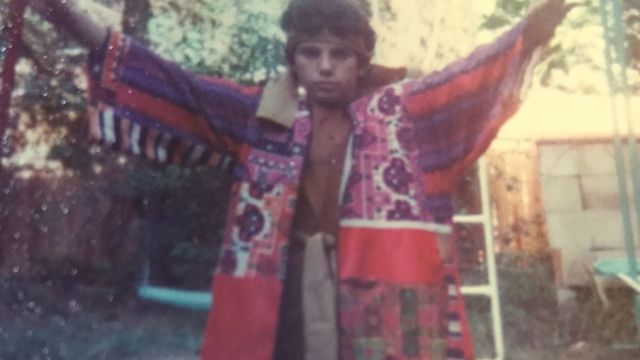Showtunes and Dementia
Have you ever wondered why you can remember the lyrics to showtunes but can’t recall something you were told ten minutes ago? This crossed my mind when I reviewed a production of Joseph and The Amazing Technicolor Dreamcoat in January.
In 1979 I played Joseph at Epping West Primary School (pictured here). My mother still talks about it and that wonderful coat, lovingly stitched together by my grandmother from all her scraps of material.
There are some difficult words to remember in Joseph. The colours of the technicolored dreamcoat are described at length in a song. It was red, and yellow and green and brown and scarlet and peach.... See I can type this up without googling it. I think I could have sung along to many of the songs. But at my workplace there are names of people that I have worked for many years that slip away.
A recent CNN article put it down to evolution. It stated that musical instruments were first used approximately 80,000 years ago, and humans were singing long before that. The article states that parts of the brain that involve music recall, evolved before the parts of the brain that involve language. Because of this, our early ancestors would make up songs to remember everyday tasks such as recipes and directions.
I am not convinced by his argument. Haven’t we had a lot of practise with the written word since we got out of the cave?
One academic believes it is the combination of music and poetry that helps the grey matter.
Professor Ian Cross, the Director of the Centre for Science and Music in London, says quality music and lyrics are the key.
“We know that if the words don’t match with that temporal structure they can't be the right words. So, it kind of narrows down the search space. Lyrics to a piece of music is probably even more so because there's not only the rhythmic structure, but there's also melodic structure – the tune, the ups and downs, and the pitch that the words accompany. Put all these together, and that gives you a very powerful set of cues that help you remember, much more perfectly than just remembering random stretches of speech.”
I think he might be onto something. Badly written songs are difficult to memorise and easy to forget.
A striking example came in a study of Alzheimer patients at a US elderly care home in 2013.
Researchers noted that dementia patients often demonstrate a striking ability to remember the lyrics and melodies of songs from their past. The more they practise the better it is for them.
Over a four-month study, the mental performance of patients who took part in regular group singing sessions improved compared with others who just listened.
In the sessions, patients were led through familiar songs from The Sound of Music, Oklahoma, The Wizard of Oz and Pinocchio. Only the most familiar show tunes were chosen, such as ‘Somewhere Over the Rainbow’.
Scores on cognitive tests given before and after the four months of singing classes showed that mental ability improved among the singers. Those who joined in the singing also fared better at another task that involved drawing the hands on a clock face to show a particular time.
The sessions helped people with moderate to severe dementia the most.
Jane Finn, a neuroscientist at George Mason University in Virginia said, "A lot of people have grown up singing songs and for a long time the memories are still there. When they start singing it can revive those memories."
Reaction to the results on-line have been amusing. One wag said he thought singing show tunes was a sign of dementia not the other way around.
I must confess that I am a bit of a hummer. I can be engrossed in a task on the computer while humming the show tune that is in my head. I can now relax, safe in the knowledge that it is helping me ward off dementia.
David Spicer
Alas David has not been in a musical for a few years...too busy getting other musicals on: www.davidspicer.com.au

